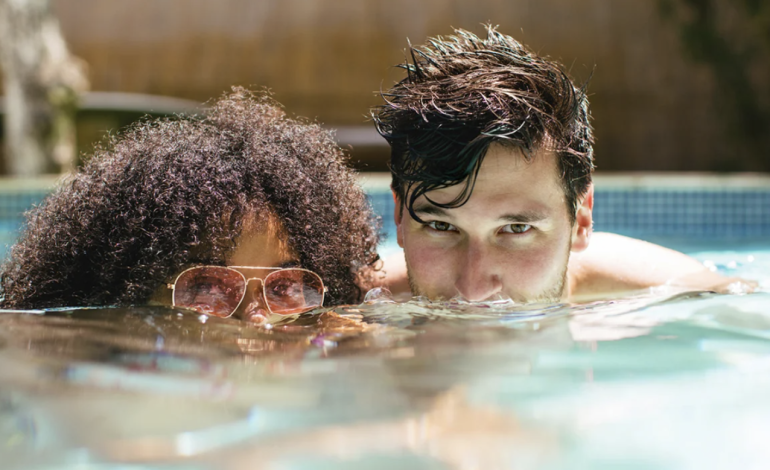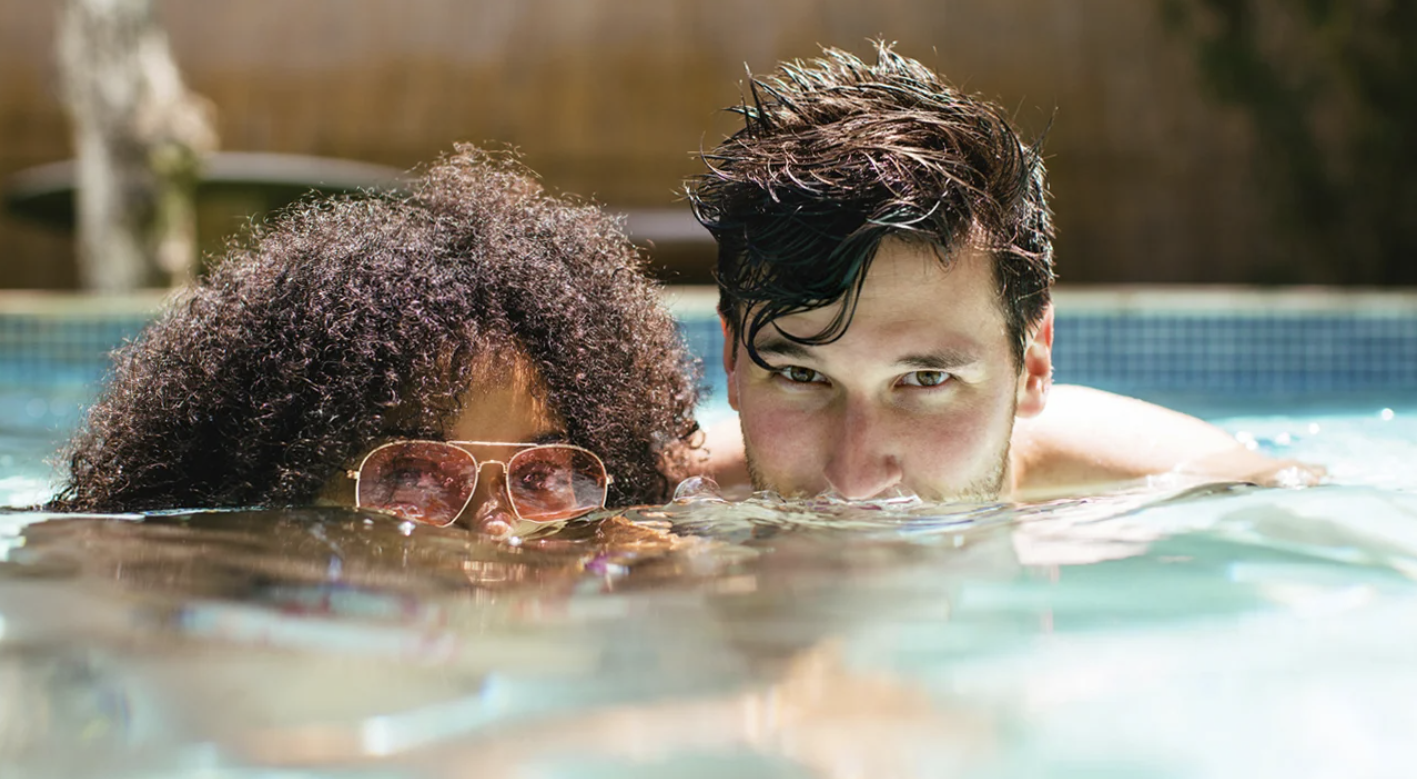
Ask an Expert: Why Does Sex in Water Feel So Dry?

If you’re anything like us, a drop in temperature to the low 50s feels like a mini tropical getaway right now. Spring fever is in full swing! But before you head off on spring break (or just take a well-deserved break), we’re here to tackle your most burning vacation-related sexual health questions.
We spoke with Robin Watkins, our in-house expert on sexual health and wellness. She’s a nurse practitioner, certified nurse-midwife, and an all-around patient and knowledgeable person.
Q: If I’m on my period, should I avoid swimming in the ocean? Are there period products that will keep me safe from sharks?
A: First off, the idea that periods attract sharks is a myth. You’re not producing enough blood to attract them. But there are definitely period products you can use while swimming. Tampons and menstrual cups are your best options since they sit inside and collect the blood before it can leak out. Pads might work, but they can absorb water and become noticeable. So, if you’re swimming, tampons or cups are your go-to.
Q: How bad is it to get sand in your vagina during sex on the beach?
A: While it’s uncomfortable, sand can cause abrasions, which increases the risk of infections. If you’re using a condom during vaginal sex, sand can also make it more likely to break. To avoid this, try not to lay directly in the sand. Use a large, thick towel or blanket as a barrier if you’re determined to have sex on the beach.
Q: What if I throw up after taking my birth control pill, like from bad shellfish or too much tequila? Asking for a friend.
A: If you throw up more than 2 hours after taking the pill, you’re fine—nothing to worry about. But if it happens within 2 hours of taking an active pill (the ones with hormones), your body hasn’t had time to fully absorb it, so treat it as if you missed the pill and take another one. If you throw up after taking an inactive pill, there’s no problem—those are just placebos and don’t affect your protection. Make sure you know the difference between active and inactive pills if you’re not sure.
Q: Can I use coconut oil as lube after applying it to my skin?
A: Coconut oil can be safe for your vagina as long as it’s clean. Don’t use it after cooking with it, and avoid using it if the jar has been contaminated with unclean hands. But as long as it’s just pure coconut oil (no additives), it should be fine. Just be cautious if you’re using condoms—coconut oil can break down latex and polyisoprene, making them less effective. It’s safer with polyurethane, nitrile, or lambskin condoms, but there’s no research specifically on coconut oil, so use it carefully.
Q: What about sex in a pool, hot tub, or any body of water? Can you get pregnant? And why does sex in water feel so dry?
A: Yes, you can still get pregnant if you have sex in water, including pools, hot tubs, lakes, or oceans. The chemicals and salt won’t impact sperm’s ability to fertilize an egg. However, those elements can irritate your vagina, and natural bodies of water can contain bacteria and organisms that could lead to infection. As for the dryness, water washes away the natural lubrication your vagina produces. If you’re planning to get busy in water, it’s a good idea to use a silicone-based lube. Or, consider skipping the pool or hot tub and having sex in the shower—it might feel more comfortable.
Q: Does alcohol affect birth control? What about recreational drugs?
A: Alcohol and recreational drugs don’t directly interfere with birth control. However, if you’re impaired and you need to take action during sex (like using a condom), you may not use the method correctly, which could make it less effective. Some prescription medications can interfere with birth control, so be mindful of that.
Q: What about sex in an airplane bathroom? From a health perspective, is it safe?
A: It’s pretty much like using a flying Porta Potty—definitely not the most hygienic option. You’re better off saving that kind of activity for a more sanitary environment.
And with that, we’ll go wash our hands!





